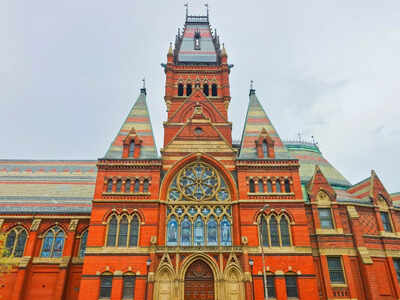The Trump administration Friday filed a motion to dismiss Harvard University’s lawsuit challenging efforts to prevent the institution from hosting international students. The case arose after the Department of Homeland Security (DHS) issued a May 22 letter revoking Harvard’s Student and Exchange Visitor Program (SEVP) certification, a requirement for enrolling foreign students, and was followed by an executive proclamation barring certain foreign students from entering the US to attend Harvard.The administration argues that the revocation of Harvard’s SEVP certification is now “moot” following a recent filing stating the DHS will not enforce the May 22 letter. At the same time, it maintains the presidential proclamation barring international students from attending Harvard is constitutional. Harvard contends the proclamation violates the university’s First Amendment rights and represents retaliation for protected speech, according to the Harvard Crimson.Legal background of the lawsuitHarvard initially brought the lawsuit in response to the DHS’s May 22 decision to revoke the university’s SEVP certification, but amended its complaint after President Donald Trump issued the June 4 executive proclamation. This proclamation barred foreign students from entering the US if their courses were fully online due to Covid-19 restrictions.The Trump administration’s lawyers contend the president has the authority under the Immigration and Nationality Act to restrict entry to the US on national security grounds. They argue that allowing Harvard’s foreign students to attend courses could “pose a serious risk to the nation.”However, Harvard challenges this interpretation, asserting that the law does not grant the president such sweeping powers to ban students on nonimmigrant visas. The university also argues the revocation letter and proclamation are unlawful and lack proper constitutional justification, as reported by the Harvard Crimson.Judge’s response and ongoing injunctionsUS District Judge Allison D. Burroughs has so far shown reluctance to accept the government’s arguments. She granted Harvard two preliminary injunctions that prevent the May 22 SEVP revocation and the June 4 proclamation from taking effect during the lawsuit. In her June 23 decision, she wrote that the proclamation lacked “legitimate grounding” and was unlikely to survive constitutional challenges.The Trump administration has appealed the injunction on the proclamation, with the First Circuit Court of Appeals scheduled to hear the case in late August. Meanwhile, the DHS’s formal notice of intent to withdraw Harvard’s SEVP certification remains active. This notice, issued on May 28, gave Harvard 30 days to demonstrate compliance with federal regulations necessary to maintain certification.Current status and university responseAs of late June, Harvard responded to the DHS notice but has not publicly disclosed the details of its compliance efforts. According to the Harvard Crimson, a university spokesperson stated that the government’s motion “has no impact” on Harvard’s ability to enrol international students and called the May 22 revocation letter “unlawful.”The government’s lawyers noted Harvard had not challenged the DHS’s ongoing withdrawal process and would have to amend its complaint to do so if it wished to contest any future decision. Several federal agencies, including the State Department and Department of Justice, are also named in Harvard’s suit.The case remains a significant legal battle over the rights of international students in the US and the extent of presidential authority over immigration and education policy.TOI Education is on WhatsApp now. Follow us here.






